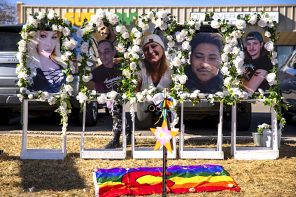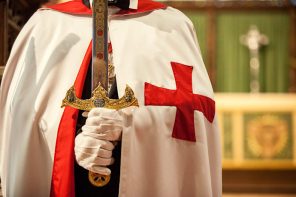If you’d asked me even two months ago what the next issue or event to spark acrimonious church-state conflict was likely to be, I doubt global pandemic would have even crossed my mind. And yet, in retrospect, it seems all too predictable. America is a country, after all, in which megachurch leaders make headlines for declaring that a tragically dead two-year-old child will be resurrected. It’s a country in which far too many Christians prefer to address mental health via demonology rather than modern psychology and psychiatry. A country in which I experienced the heartbreak not only of watching a family friend die slowly of cancer, but also of seeing the friend’s family devastated at not receiving the miraculous healing they declared would certainly come.
We should thus be unsurprised that radical charismatic Protestants are among the most vocal Americans defying the public health measures recommended by the World Health Organization and the Centers for Disease Control and Prevention, and implemented to varying degrees by state and local governments across these United States. Alas, our country is #blessed with a clunky federalism that exacerbates our ongoing crisis of democracy, and the lack of quick and consistent federal and presidential guidance on responding to the COVID-19 pandemic is surely making matters worse.
Indeed, Governor Gretchen Whitmer of Michigan recently expressed exasperation with the coronavirus crisis, saying: “We’re all building the airplane as we fly it right now.” Whitmer has been under fire from liberals for caving to Republican pressure to clarify that religious organizations are exempted from restrictions on large gatherings in Michigan. While admonishing the public that staying home from church is best, Whitmer maintains that the constitutional principle of separation of church and state prevents her from enforcing restrictions on large gatherings organized by houses of worship.
While solidly blue states including Washington and Oregon, where I reside, have explicitly mandated that restrictions include “faith-based” gatherings, some other states, including Ohio, have, like Michigan, explicitly clarified that churches may continue to hold in-person services. Indeed, Ohio Governor Mike DeWine’s executive order includes “religious facilities, entities and groups and religious gatherings” under “Essential Businesses and Operations.”
Although some Texas county-level shelter-in-place orders do ban religious gatherings of more than ten people, when asked about the issue, Texas Governor Greg Abbott asserted religious gatherings are exempt due to “freedom of religion.” While his rhetoric is more in line with the talking points the Christian Right has used to advance a theocratic agenda in recent years, both Whitmer and Abbot are essentially making First Amendment arguments.
Their claims are certainly controversial. My limited understanding of constitutional law—I am far from an expert—suggests that such arguments are not in line with the relevant precedents, but that approaches made on the basis of the federal- or state-level Religious Freedom Restoration Acts (RFRA) might hold more weight. I asked Nick Fish, President of American Atheists, to weigh in on the legal issues as his organization understands them. (Full disclosure: I was slated to speak at this year’s American Atheists Convention in Phoenix, Arizona over Easter weekend before it was postponed until next year, and I remain slated to speak when the event is able to take place.)
Fish, who hails from Michigan himself, contends that the “irresponsible and dangerous” exemptions from public health measures in response to the coronavirus pandemic that some governors have made for religious institutions “are unnecessary under the law.”
With respect to Abbot’s “freedom of religion” argument, he notes: “Even religious liberty advocates with expansive views of religious exemptions recognize that our government can limit gatherings at churches to protect lives. In the 1944 case Prince v. Massachusetts, the Supreme Court stated that ‘the right to practice religion freely does not include liberty to expose the community…to communicable disease.’”
Fish also maintains that there’s no case for such exemptions under RFRA legislation. RFRA laws, Fish explains, hold that “any government action that substantially burdens religious exercise must be narrowly tailored to achieve a compelling government interest and be the least restrictive means of achieving that interest.” And, he argues, state bans on large gatherings as a means of slowing the spread of COVID-19 meet that legal test, claiming, “protecting public health is the quintessential compelling government interest,” and adding, “limiting attendance is the least restrictive means of preserving public health, and the ban is narrowly tailored to that goal.”
The argument seems compelling, but Fish goes further, making a moral appeal to America’s governors:
Before it’s too late and more lives are lost, governors must repeal exemptions for houses of worship. Likewise, governors that enact large gathering bans over the next few weeks must include religious services, as well. To do otherwise is to endanger the lives of countless Americans.
COVID-19 is no respecter of persons, and it seems clear that we do not have the time to wait for these particular church-state issues to play themselves out in the courts before the American healthcare system is overwhelmed by the new virus. Is it too much to hope that common sense will prevail in the meantime?





